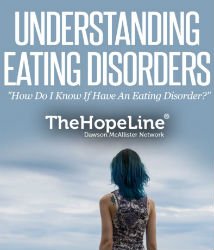Cultural Impact on Eating Disorders in New Zealand
New Zealand’s rich cultural tapestry significantly influences the understanding and prevalence of youth eating disorders among its diverse ethnic groups. As globalization and cultural exchange shape societal norms, varying ideals of beauty and health emerge, often leading to differing experiences and expressions of eating disorders. The unique perspectives of Māori, Pacific Islanders, and other ethnic communities contribute to a complex landscape where traditional views may clash with Western ideals, impacting how youth navigate issues related to body image and disordered eating.
Recent trends indicate that youth eating disorders are rising across various demographics in New Zealand, necessitating a deeper exploration of cultural factors at play. Understanding these influences is crucial for developing effective prevention and treatment strategies tailored to the needs of different communities. For more insights into the latest statistics on eating disorders in New Zealand, visit this resource.
Cultural Diversity in New Zealand: An Overview
New Zealand is renowned for its rich tapestry of cultures, including Māori, Pacific Islander, and various immigrant communities from Europe and Asia. This cultural diversity significantly influences societal norms, values, and perceptions regarding body image and eating behaviors. Understanding these cultural nuances is essential for comprehensively addressing youth eating disorders in the country. Each ethnic group may have its own traditional practices and beliefs surrounding food, which can impact how individuals relate to their bodies and food intake.
Māori culture, for instance, places a strong emphasis on communal eating and the sharing of food as a form of social connection. This can foster a positive relationship with food, yet it may also lead to challenges when Western ideals of thinness infiltrate these communal practices. Pacific Islander cultures, often characterized by their unique culinary traditions, may also encounter tensions between traditional food practices and modern societal pressures. As a result, it is crucial to appreciate the cultural context when discussing the prevalence of youth eating disorders among these groups.
For more information on how cultural factors influence eating disorders, visit Eating Disorders New Zealand.
Societal Pressure and Body Image
The societal pressures regarding body image are pervasive in New Zealand, particularly among youth. Exposure to media and advertising often promotes unrealistic body standards, which can exacerbate feelings of inadequacy, particularly in cultures that already face discrimination or marginalization. For ethnic minorities, these pressures can intersect with cultural expectations, leading to a complex relationship with body image.
In many traditional cultures, a fuller body may be celebrated as a sign of health and wealth, which contrasts sharply with Western ideals. For young Māori and Pacific Islanders, the clash between these differing ideals can create confusion and distress. This discord may contribute to the development of eating disorders, as youths struggle to reconcile their cultural identity with societal expectations.
It is important to create supportive environments that promote body positivity and acceptance of diverse body shapes and sizes. Schools and community organizations can play a crucial role by incorporating cultural education into their programs, fostering discussions about body image that honor both traditional and contemporary perspectives.
Access to Mental Health Resources
Access to mental health resources can vary significantly across New Zealand’s diverse communities. For many ethnic minorities, language barriers, cultural stigma, and a lack of culturally competent care can hinder individuals from seeking help for eating disorders. Māori, in particular, face disparities in access to mental health services, which can impede recovery.
Community-based initiatives that focus on culturally appropriate interventions are vital for addressing these barriers. For instance, incorporating Māori healing practices and philosophies into treatment plans can enhance the effectiveness of mental health services for Māori youth struggling with eating disorders. Furthermore, outreach programs that provide education about eating disorders and mental health can help demystify these issues and encourage individuals to seek help.
For resources specific to eating disorders in New Zealand, visit Eating Disorders New Zealand.
The Role of Family and Community Support
Family and community support play a pivotal role in the prevention and treatment of youth eating disorders. In many cultures, particularly among Māori and Pacific Islander communities, family is central to an individual’s identity and support network. Engaging family members in treatment can significantly enhance recovery outcomes, as they often provide emotional support and practical assistance.
Community initiatives that promote healthy eating patterns and body positivity can also contribute to reducing the stigma surrounding eating disorders. Cultural events that celebrate traditional foods and practices can reinforce positive body image and encourage open dialogue about mental health issues. By fostering a sense of belonging and cultural pride, these initiatives can mitigate some of the societal pressures that contribute to eating disorders.
Engaging families in discussions about healthy relationships with food can also empower them to support their youth in navigating challenges related to body image and eating behaviors.
Education and Awareness Programs
Education and awareness programs are essential for addressing the rising prevalence of eating disorders among youth in New Zealand. Schools, community organizations, and health services must work collaboratively to develop culturally sensitive educational materials that address the unique needs of various ethnic groups.
Programs that focus on media literacy can help young people critically analyze the portrayal of body image in various media forms. Workshops that include discussions about cultural diversity and body positivity can empower youth to embrace their identities while promoting healthy eating habits. Additionally, training educators and health professionals in cultural competency can enhance their ability to connect with students and patients from diverse backgrounds.
Incorporating stories and experiences from different ethnic communities can further enrich these educational programs, allowing young people to see themselves represented and understood. For further resources and support, check out Eating Disorders New Zealand.
The Impact of Acculturation
Acculturation, or the process of cultural change resulting from the interaction between different cultures, can have a profound impact on eating behaviors and the development of eating disorders among youth in New Zealand. Immigrant communities often face pressures to assimilate into the dominant culture, which can lead to a conflict between traditional dietary practices and Western eating habits.
For example, young immigrants may feel pressured to adopt Western notions of beauty and body image, leading to unhealthy eating behaviors and increased risk of eating disorders. Conversely, individuals who strongly identify with their cultural heritage may resist these pressures, leading to a protective effect against eating disorders. Understanding the nuances of acculturation is essential for developing effective prevention and intervention strategies.
Community leaders and organizations can play an essential role in supporting youth through this process by promoting cultural pride and encouraging healthy eating practices that align with both traditional and contemporary lifestyles.
Future Directions and Research Needs
As New Zealand continues to evolve as a multicultural society, there is a pressing need for more research on the intersection of culture and eating disorders. Understanding how different cultural backgrounds influence the prevalence, manifestation, and treatment of eating disorders is vital for developing effective interventions. Collaborative research efforts that include voices from diverse communities can enhance our understanding of these issues and lead to more culturally relevant solutions.
Future studies should also focus on longitudinal approaches to track changes in eating disorder prevalence as societal attitudes shift and as younger generations navigate increasingly globalized influences. By addressing these gaps in research and knowledge, New Zealand can better support its youth in overcoming eating disorders and fostering a healthier relationship with food.
For ongoing support and resources, please visit Eating Disorders New Zealand.
FAQs
What are the primary cultural factors influencing eating disorders among youth in New Zealand?
Cultural factors such as body image ideals, family dynamics, and social pressures significantly influence the prevalence of eating disorders among youth in New Zealand. Different ethnic groups may have varying perceptions of beauty and health, which can affect how young individuals view their bodies and engage in disordered eating behaviors.
How does New Zealand’s diverse cultural landscape impact the understanding of eating disorders?
New Zealand’s multicultural society means that various ethnic groups bring distinct beliefs and practices related to health and body image. This diversity influences how eating disorders are perceived, diagnosed, and treated, as cultural stigma and differing values around food and body size can shape individual experiences and access to support.
Are certain ethnic groups in New Zealand more vulnerable to youth eating disorders?
Research indicates that certain ethnic groups, such as Māori and Pasifika youth, may face unique vulnerabilities to eating disorders due to factors like cultural expectations, socioeconomic challenges, and experiences of colonization. These factors can contribute to higher levels of body dissatisfaction and disordered eating behaviors among these populations.
What role do family dynamics play in the development of eating disorders among youth?
Family dynamics are crucial in shaping attitudes towards food and body image. In many cultures, family expectations regarding appearance and behavior can create pressure on young individuals, leading to disordered eating patterns. Understanding these dynamics is vital for developing effective prevention and intervention strategies.
How can cultural sensitivity improve the treatment of eating disorders in New Zealand?
Culturally sensitive treatment approaches can enhance the effectiveness of interventions for youth with eating disorders. By recognizing and integrating cultural values, beliefs, and practices into treatment plans, healthcare providers can foster a more supportive environment that encourages recovery and respects each individual’s background.
What preventative measures can be taken to address eating disorders among diverse youth populations?
Preventative measures should include culturally relevant education programs that promote healthy body image and eating habits. Engaging communities, schools, and families in discussions about diversity in beauty standards and healthy living can help reduce stigma and encourage open conversations about eating disorders among youth.
How can communities support youth at risk of developing eating disorders?
Communities can support at-risk youth by creating safe spaces for dialogue about body image and mental health, providing access to resources and support services, and fostering inclusive environments that celebrate diversity. Encouraging peer support networks and involvement in community activities can also help youth feel valued and understood.
References
- Eating Disorders Association of New Zealand – A comprehensive resource providing information on eating disorders in New Zealand, including cultural considerations and support services available for various ethnic groups.
- Eating Disorders in New Zealand: A Discussion Document – A document from the New Zealand Ministry of Health discussing the prevalence of eating disorders among different cultural groups and the associated health implications.
- Cultural Differences in Eating Disorders: A Critical Review – An academic article exploring how cultural factors influence the manifestation and understanding of eating disorders in various populations, including insights relevant to New Zealand’s ethnic diversity.
- Eating Disorders in Ethnic Minorities and New Zealanders – A study published in Psychological Medicine that examines the prevalence and characteristics of eating disorders among different ethnic groups in New Zealand.
- Cultural Influences on Eating Disorders: A New Zealand Perspective – An article from the National Institutes of Health discussing the impact of New Zealand’s multicultural environment on the prevalence and understanding of eating disorders across various ethnic communities.








Recent Comments